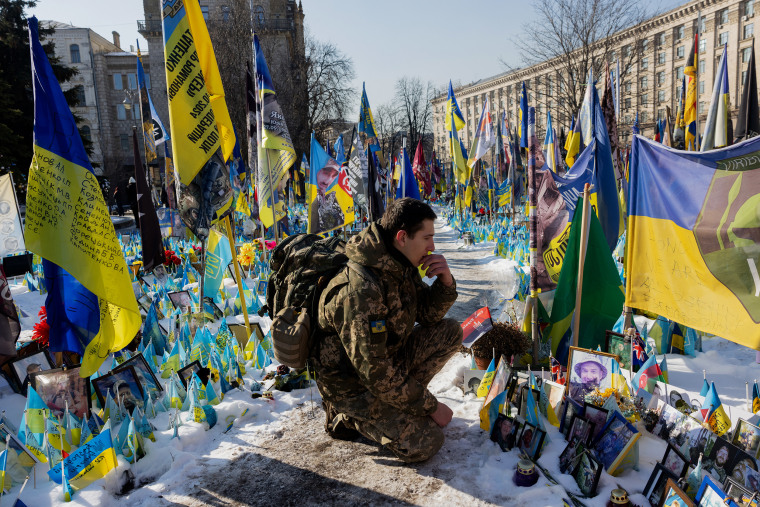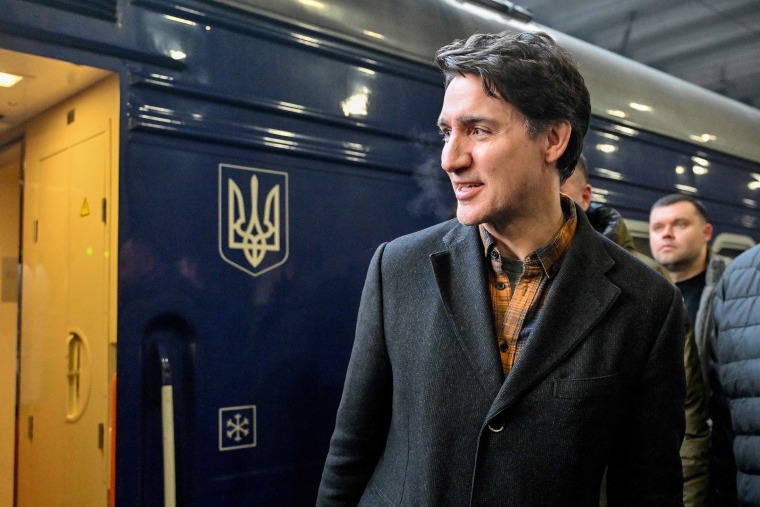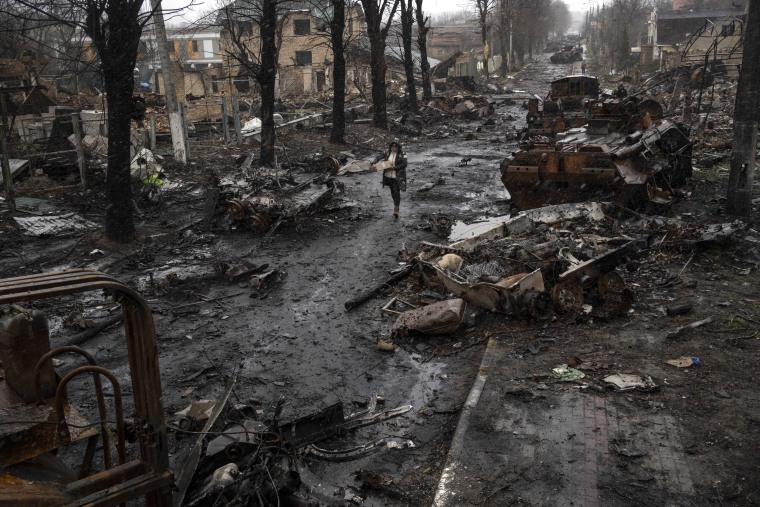Ukrainian President Volodymyr Zelenskyy was surrounded by allies on Monday as he marked three years since Russian President Vladimir Putin's forces invaded his country. There was one notable absence: a representative from Washington.
Although backed by much of Europe, Ukraine faces an increasingly uncertain future as President Donald Trump dramatically breaks with traditional United States foreign policy and is increasingly sympathetic to the Russian invaders.
As Ukraine's allies lamented the conflict's toll, they also extolled the defence of the liberal European project and its centrality to the war in Ukraine.
“In this fight for survival, it is not only the destiny of Ukraine that is at stake,” European Commission President Ursula Von der Leyen said in a post on X after arriving in Kyiv alongside other European leaders, as well as outgoing Canadian Prime Minister Justin Trudeau. “It’s Europe’s destiny," she said, with the European Union approving a fresh round of sanctions against Russia on Monday.
President Donald Trump last week blamed Zelenskyy for failing to secure a "deal" with Russia to end the war and at one point branding the Ukrainian leader a "dictator," even though the Ukrainian leader was freely elected and enjoys higher approval ratings than Trump.
Russia's Putin, meanwhile, has remained in power for decades through deepening crackdowns on free expression and increasingly illegitimate elections, according to international experts.
Ukraine and its European allies were dismayed when they weren't included in U.S. and Russian negotiations an end to the conflict.

Determined to maintain U.S. support, Zelenskyy on Sunday said he would quit as president if that would help resolve the conflict.
“If it is peace for Ukraine, and if you really want me to leave my post, I’m ready," Zelenskyy said. "Alternatively, I can trade this for NATO membership, if such conditions exist, immediately."
"I’m focusing on Ukraine’s security today, not in 20 years. And I don’t intend to stay in power for decades," he said.
Ukraine has long called for membership of NATO defense alliance, something that Russia vehemently opposes as it sees it as a threat.
Russia currently occupies 20% of the country.
As of Jan. 20, the day of Trump's inauguration, the U.S. had provided $65.9 billion in military assistance to Ukraine since Russia invaded, and around $69.2 billion since Moscow's initial invasion of the Crimean Peninsula in 2014, according to a State Department fact sheet.
More than 12,600 civilians have been killed over the last three years, including at least 669 children, while over 29,300 people have been injured, according to the Office of the United Nations High Commissioner for Human Rights (OHCHR).

In the third year of the war, civilian casualties were estimated to have risen by around 30%, the OHCHR said last week.
Ukraine's energy infrastructure has also fallen under attack, with at least "14 large-scale, coordinated attacks and intensifying the difficulties in providing education, healthcare, heating supply, and water distribution. " since last March alone, creating a "serious electricity deficit, the OHCHR said.

“Civilians face constant and compounding harm as the conflict continues,” Danielle Bell, chief of UN Human Rights Monitoring Mission (HRMMU), said in a statement published on Friday.
“The large-scale use of explosive weapons in populated areas has not only killed and injured civilians across Ukraine, but it has also displaced millions who have fled violence and disrupted basic services essential to civilian life and well-being," she said.
